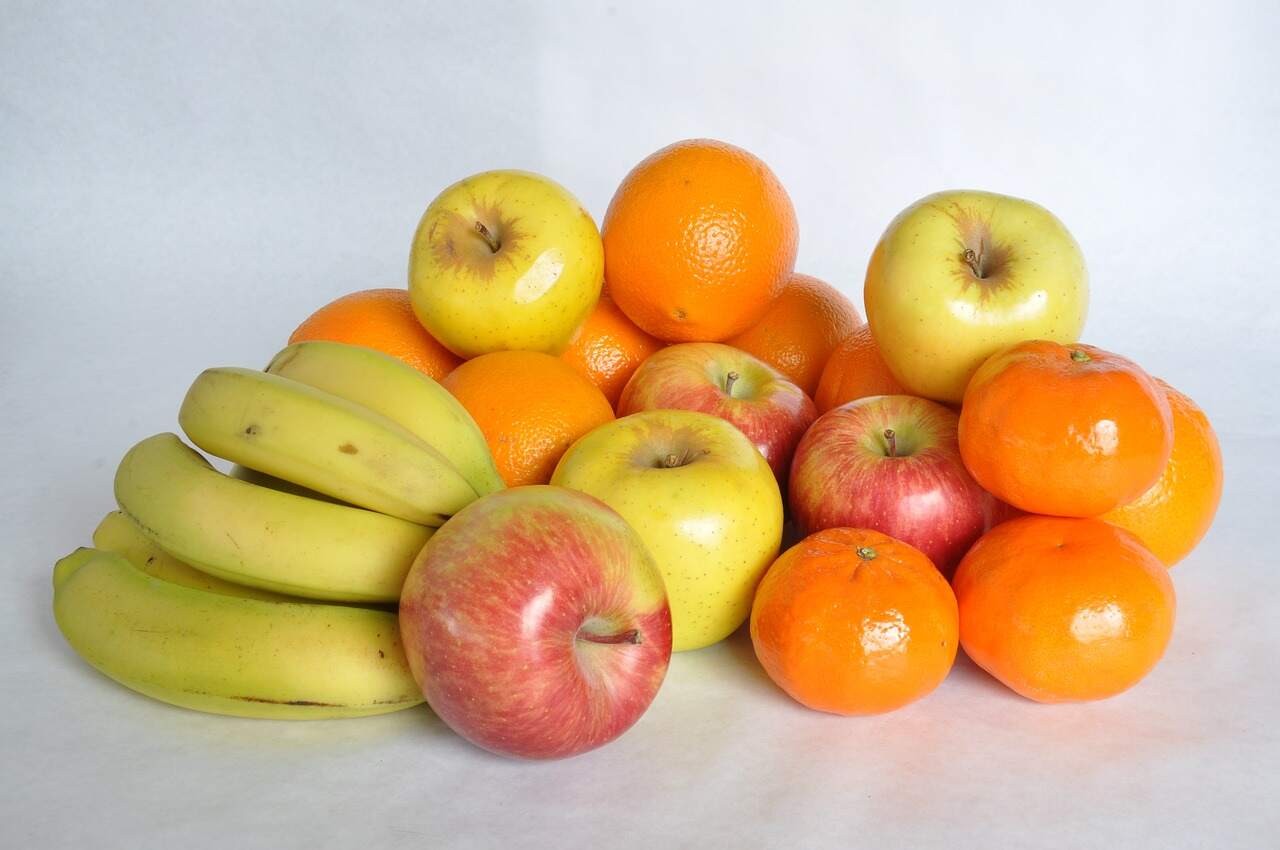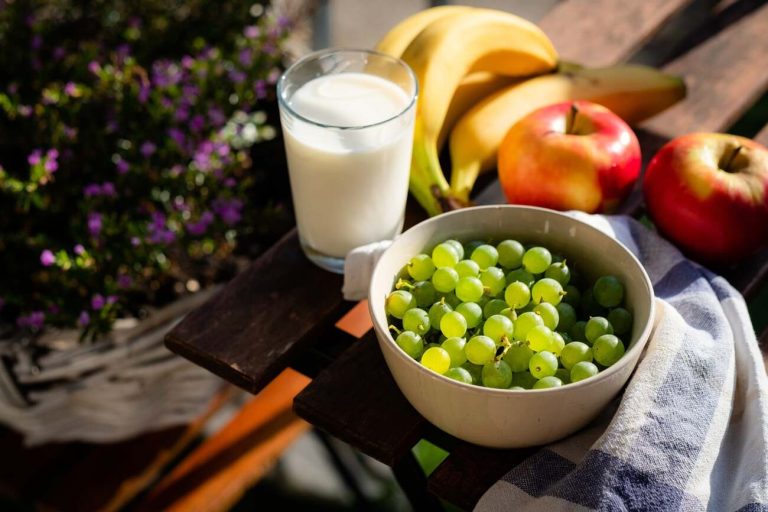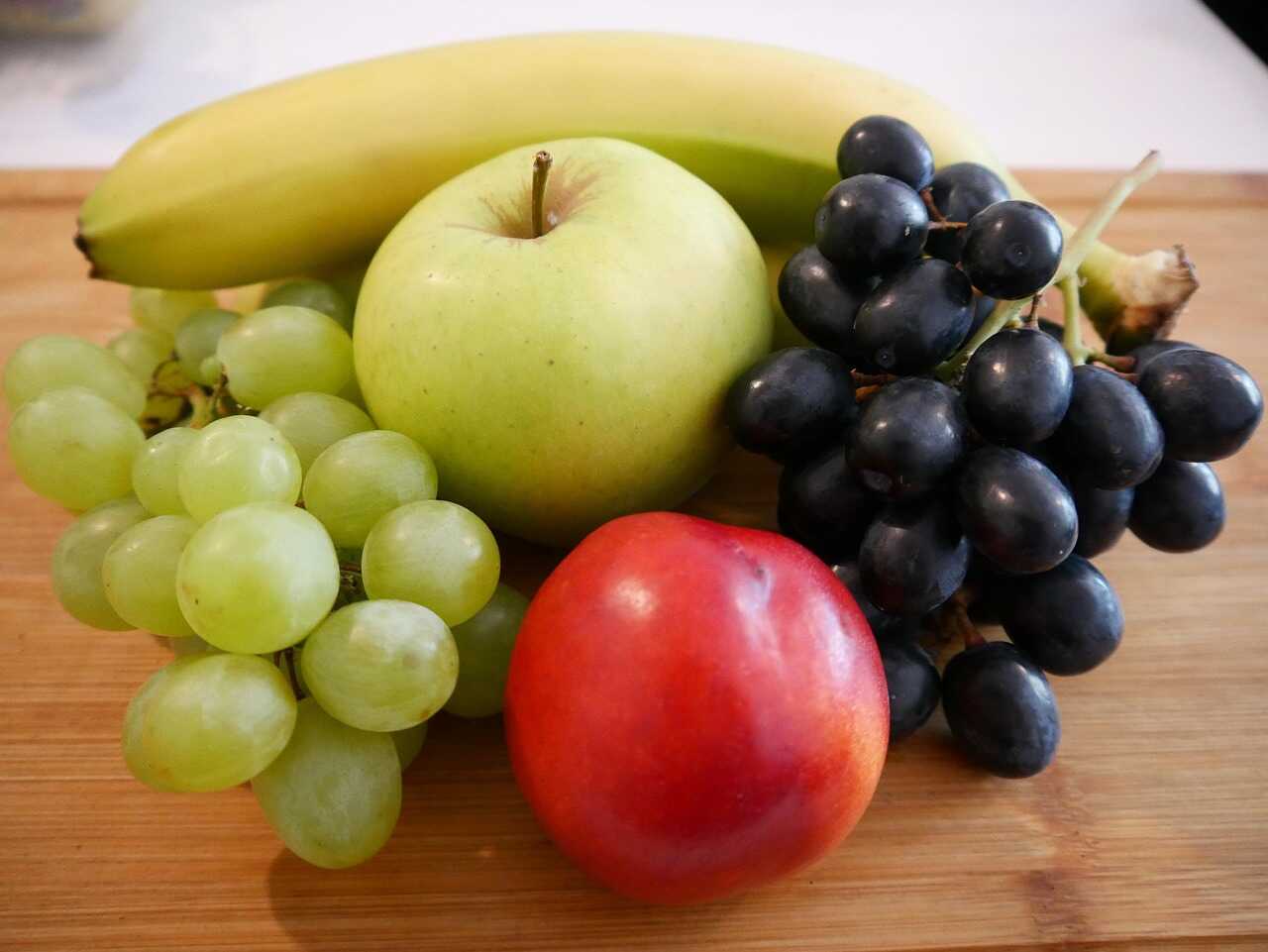Healthy Foods for Kids providing kids with a nutritious diet is crucial for their growth, development, and overall well-being. A balanced diet supports strong bones, brain function, and a healthy immune system. However, getting children to eat healthy foods can be challenging. This guide will explore the best healthy foods for kids, offering nutritious and delicious choices to help them thrive.
Why Nutrition Matters for Kids
Children need a well-balanced diet rich in essential nutrients to fuel their bodies and minds. Proper nutrition helps in:
- Brain Development: Essential for cognitive function and academic performance.
- Growth and Strong Bones: Calcium, vitamin D, and protein are crucial for skeletal health.
- Energy Levels: Whole foods provide sustained energy throughout the day.
- Immune System Support: Vitamins and antioxidants help fight infections and illnesses.
Essential Nutrients for Kids
A child’s diet should include a variety of nutrients to promote overall health. Healthy Foods for Kids nutrients include:
1. Protein
Protein is vital for muscle growth and tissue repair. Excellent protein sources include:
- Lean meats like chicken and turkey
- Fish such as salmon and tuna
- Eggs
- Dairy products like yogurt and cheese
- Beans, lentils, and tofu
2. Healthy Fats
Fats are essential for brain development and hormone production. Choose:
- Avocados
- Nuts and seeds
- Olive oil
- Fatty fish
- Nut butters
3. Carbohydrates
Carbs provide energy, but opt for complex carbs over refined sugars. Good sources include:
- Whole grains (brown rice, quinoa, whole wheat bread)
- Fruits and vegetables
- Legumes
- Oats
4. Vitamins & Minerals
Healthy Foods for Kids need a variety of vitamins and minerals:
- Calcium: Available in dairy products, leafy greens, and fortified foods.
- Iron: Found in lean meats, beans, and fortified cereals.
- Vitamin C: Abundant in citrus fruits, bell peppers, and strawberries
- Vitamin D: Sourced from sunlight, dairy, and fatty fish
Healthy Meal Ideas for Kids

1. Breakfast Ideas
- Oatmeal with Fruits & Nuts: Provides fiber and protein.
- Greek Yogurt with Honey & Berries: Rich in probiotics and antioxidants.
- Scrambled Eggs with Whole Grain Toast: High in protein and essential fats.
2. Lunchbox Favorites
- Whole Grain Sandwich with Lean Protein: Turkey, hummus, or peanut butter with whole wheat bread.
- Vegetable Wraps: Filled with avocado, cheese, and colorful veggies.
- Homemade Pasta Salad: Whole wheat pasta with grilled chicken and veggies.
3. Healthy Snacks
- Hummus with Carrot and Cucumber Sticks
- Apple Slices with Peanut Butter
- Cheese Cubes with Whole Grain Crackers
- Homemade Trail Mix (unsweetened dried fruit, nuts, and seeds)
4. Nutritious Dinners
- Grilled Salmon with Quinoa and Steamed Broccoli
- Stir-Fried Chicken with Brown Rice and Mixed Veggies
- Homemade Vegetable Soup with Whole Grain Bread
Top 10 Baby Foods: Nourishing Your Little One’s Growth
Tips for Encouraging Healthy Eating
- Make Meals Fun – Use colorful foods, fun shapes, and interactive dishes.
- Get Kids Involved – Let them help with grocery shopping and meal preparation.
- Be a Role Model – Children mimic adults, so eat healthy yourself.
- Limit Processed Foods – Reduce sugary drinks, fast food, and snacks high in artificial ingredients.
- Offer Variety – Rotate different foods to ensure a balanced intake of nutrients.
10 best healthy foods for kids
List Healthy Foods for Kids :
- Eggs – Packed with protein and essential nutrients for brain development.
- Yogurt – A great source of probiotics, calcium, and protein for strong bones.
- Berries – High in antioxidants, fiber, and vitamins to support immunity.
- Nuts & Seeds – Provide healthy fats, protein, and essential minerals.
- Oatmeal – A fiber-rich breakfast option that keeps energy levels steady.
- Leafy Greens – Loaded with vitamins and minerals to support overall health.
- Sweet Potatoes – A nutritious source of vitamin A and fiber for digestion.
- Salmon – High in omega-3 fatty acids for brain and heart health.
- Avocados – Rich in healthy fats that support brain function and growth.
- Beans & Lentils – Packed with fiber, protein, and iron for sustained energy.
4 to 5-Year-Old Child Food Chart
Healthy Foods for Kids balanced diet for a 4 to 5-year-old should include a mix of proteins, healthy fats, fiber, and essential vitamins. Here’s a sample daily meal plan:

🔹 Breakfast
🥣 Whole grain oatmeal with honey and chopped nuts
🍓 A small bowl of fresh berries
🥛 A glass of milk
🔹 Mid-Morning Snack
🍌 Banana with a handful of almonds or peanuts
🧀 A small cheese cube
🔹healthy foods for kids lunch
🍚 Brown rice or whole wheat chapati
🍗 Grilled chicken or lentils (dal) for protein
🥦 Steamed vegetables (carrots, peas, broccoli)
🍎 A small apple
🔹 Evening Snack
🍞 Whole wheat sandwich with peanut butter or cheese
🥤 Fresh fruit smoothie
🔹 Dinner
🍲 Vegetable soup or dal with chapati
🐟 Grilled fish or paneer for protein
🥬 Cucumber and tomato salad
🥛 A glass of warm milk
Tips for a Healthy Diet
✅ Include a variety of foods for balanced nutrition.
✅ Avoid processed and sugary snacks.
✅ Encourage hydration with water and fresh juices.
✅ Serve food in fun shapes or colors to make it appealing.
Importance of Healthy Food for Kids

Healthy food is essential for kids as it supports their growth, development, and overall well-being. Here’s why it matters:
- Supports Growth & Development – Nutrient-rich foods provide essential vitamins and minerals needed for strong bones, muscles, and brain development.
- Boosts Immunity – A well-balanced diet helps strengthen the immune system, reducing the risk of illnesses and infections.
- Enhances Brain Function – Healthy foods like fish, nuts, and leafy greens improve memory, concentration, and cognitive skills.
- Maintains a Healthy Weight – A nutritious diet helps prevent obesity and related health issues like diabetes and heart disease.
- Provides Energy – Whole foods like fruits, vegetables, and whole grains give kids sustained energy for daily activities and learning.
- Improves Digestion – Fiber-rich foods promote healthy digestion and prevent constipation.
- Builds Healthy Eating Habits – Encouraging kids to eat healthy early on sets the foundation for lifelong nutritious choices.
Read more to interested to related post>
Conclusion
A nutritious diet plays a fundamental role in a child’s overall health and development. By incorporating a variety of whole foods, proteins, healthy fats, and vitamins, parents can ensure their kids grow strong and stay energized. Making healthy eating fun and engaging will encourage children to develop lifelong good eating habits. Start today and watch your little ones thrive!
Frequently Asked Questions (FAQs)
1. How can I encourage my picky eater to try new foods?
- Introduce one new food at a time alongside familiar favorites.
- Make food visually appealing by using different colors and shapes.
- Avoid pressuring them; let them explore the food naturally.
2. Are organic foods better for kids?
- Organic foods have fewer pesticides and additives, but non-organic foods are still nutritious when properly washed.
3. How much water should kids drink daily?
- Children aged 4-8 need about 5 cups (1.2 liters) of water daily, while older kids require more depending on their activity levels.
4. Can my child have snacks?
- Yes! Choose healthy snacks like fruits, yogurt, nuts, and whole grains instead of processed foods.
5. What if my child has food allergies?
- Substitute allergenic foods with safe alternatives (e.g., almond milk instead of dairy, quinoa instead of wheat).
- Always read food labels and consult a doctor for guidance.




